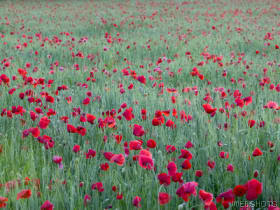
Merry Xmas & happy everything to everyone,
lots of love from me & Tom & Solti.
Back soon.
xxxxxxx

 No, you're not on the wrong blog - this is JDCMB. But our dear friend Opera Chic is a dab hand with Photoshop, which JD ain't, and sent me this stunning birthday present last week, inspired by a press release I forwarded to her that was entitled, pricelessly enough, JOHN ELIOT GARDINER RE-OPENS OPERA-COMIQUE IN FRONT OF FRENCH CABINET. (Here in London I have a very nice French cabinet that we bought on E-bay. I think it's walnut wood.) Salut, Maestro Jean Eliot Jardinier! Et merci bien, chere OC!
No, you're not on the wrong blog - this is JDCMB. But our dear friend Opera Chic is a dab hand with Photoshop, which JD ain't, and sent me this stunning birthday present last week, inspired by a press release I forwarded to her that was entitled, pricelessly enough, JOHN ELIOT GARDINER RE-OPENS OPERA-COMIQUE IN FRONT OF FRENCH CABINET. (Here in London I have a very nice French cabinet that we bought on E-bay. I think it's walnut wood.) Salut, Maestro Jean Eliot Jardinier! Et merci bien, chere OC!In music, two respected chamber orchestras, the City of London Sinfonia and the London Mozart Players, have been told to brace themselves for the worst.
 JD meets Ida Haendel in the green room of the Wigmore Hall. This was one of countless memorable moments during the visit of this doyenne of the violin to the Razumovsky Academy, organised by the inimitable Oleg Kogan, during which she gave masterclasses to the gifted youngsters and performed in their Wigmore Hall concert. She played the Bach Chaconne. Nobody who was there will ever forget it.
JD meets Ida Haendel in the green room of the Wigmore Hall. This was one of countless memorable moments during the visit of this doyenne of the violin to the Razumovsky Academy, organised by the inimitable Oleg Kogan, during which she gave masterclasses to the gifted youngsters and performed in their Wigmore Hall concert. She played the Bach Chaconne. Nobody who was there will ever forget it.  All the Razumovsky students and young artists are immensely impressive and maybe it's not fair for me to single one out - nevertheless, keep a look-out for the simply staggering talent of Anna-Liisa Bezrodny (left), the Razumovsky Academy's glorious 26-year-old violinist from Estonia. She has one of those all-giving and all-encompassing tones whose white heat can lift you right out of your chair. Hers was the last of the lessons - on the Sibelius concerto - and I've never before seen a masterclass which ended in a great big hug centre stage. Anna-Liisa recently won the Gold Medal at the Guildhall School of Music and Drama, where she's been studying with Oleg among others. I am pleased, but not surprised, to see that on her Myspace profile she lists, under 'influences', the name 'Hirschhorn'.
All the Razumovsky students and young artists are immensely impressive and maybe it's not fair for me to single one out - nevertheless, keep a look-out for the simply staggering talent of Anna-Liisa Bezrodny (left), the Razumovsky Academy's glorious 26-year-old violinist from Estonia. She has one of those all-giving and all-encompassing tones whose white heat can lift you right out of your chair. Hers was the last of the lessons - on the Sibelius concerto - and I've never before seen a masterclass which ended in a great big hug centre stage. Anna-Liisa recently won the Gold Medal at the Guildhall School of Music and Drama, where she's been studying with Oleg among others. I am pleased, but not surprised, to see that on her Myspace profile she lists, under 'influences', the name 'Hirschhorn'.

Dark, petite and fiercely intelligent, with a quick, cutting sense of irony, Dessay is anything but a traditional diva. Indeed, she had never intended to become an opera singer at all. "It's not a choice. Opera chose me," she declares. Originally, she wanted to be a ballet dancer. "At 13, I realised that I wasn't gifted enough, and I was disappointed. But I thought, OK, I can go on stage as an actress instead."


Melodically and harmonically it lays fair claim to being the most erotic music ever written. Nikolaj Znaider intensified that feeling through his refinement, his beautiful sound, his insinuating way with the work's abundance of blue notes. With chromaticism once again a dirty word, Jurowski and the LPO laid down the orchestral textures (shimmering with vibraphone) like black satin sheets of adultery.


The Burning of the Leaves
Now is the time for the burning of the leaves.
They go to the fire; the nostril pricks with smoke
Wandering slowly into the weeping mist.
Brittle and blotched, ragged and rotten sheaves!
A flame seizes the smoldering ruin and bites
On stubborn stalks that crackle as they resist.
The last hollyhock's fallen tower is dust;
All the spices of June are a bitter reek,
All the extravagant riches spent and mean.
All burns! the reddest rose is a ghost;
Sparks whirl up, to expire in the mist: the wild
Fingers of fire are making corruption clean.
Now is the time for stripping the spirit bare,
Time for the burning of days ended and done,
Idle solace of things that have gone before:
Rootless hope and fruitless desire are there;
Let them go to the fire, with never a look behind.
That world that was ours is a world that is ours no more.
They will come again, the leaf and the flower, to arise
From squalor of rottenness into the old splendour,
And magical scents to a wondering memory bring;
The same glory, to shine upon different eyes.
Earth cares for her own ruins, naught for ours.
Nothing is certain, only the certain spring.
ENO has sent you an Aida e-card in collaboration with top British fashion designer Zandra Rhodes. This exclusive e-card gives you the chance to explore Zandra's costumes from ENO's spectacular new production of Verdi's Aida though an interactive dress-up doll. Click onto the e-card to try styling your own outfits and then send it on to a friend to share the fun!
Flex your style muscles!
Choose from a selection of exotic costumes and vivid colours from this unique production to create your own outfit. Forward your stylish results on to a friend and they can have a go too!
...the most enjoyable aspect of Classical Star has been seeing how fantastically resistant classical music is to being sexed up. What dreamy Emily, streetwise Tyler and the others have in common is their absolute respect for the craft they are learning. By the time most Big Brother contestants drag themselves out of bed for a snog or hair of the dog, the Classical Star competitors have been practising for hours. Indeed, the worst incidence of naughtiness to be seen on the series so far was when one violinist snaffled an extra 20 minutes of rehearsal time.
Will the series encourage more children to take up an instrument? Possibly, for it does at least show that kids who like Lutoslawski are not, on the whole, the freaks and geeks of popular imagination. Will it create a real Classical Star? No.
Since the aim is to find a classical star, not a classical artist, the series is peripheral to anyone with a serious interest in music. It is mildly entertaining in the way the late-night weather forecast can be when seen through a bad head cold. I shall probably watch it again, with Lemsip. What it is doing on the BBC, I have no idea.
Max Steiner, composer of King Kong and Gone with the Wind, among others, was a friend of Korngold's in Hollywood. One day he remarked to Korngold, "You know, Erich, since you've been in Hollywood, your music has got worse and my music has got better. Why do you suppose that is?" Without missing a beat, Korngold replied: "That's easy, Max, it's because you've been stealing from me and I've been stealing from you!"

Korngold, 110 next month and 50 years dead, richly deserves to be welcomed back to the concert hall. But he deserves even more to be recognised as a pioneer of an allied art, an art that now cries out for a new Korngold to rejuvenate its methodology. The time has come to erase the line between movie and concert music, to encourage the likes of John Adams, Thomas Ades and Mark Anton Turnage to try their hand at lifting film tracks out of the Korngold groove and into 21st century modalities.
...The discourse supporting classical music so reeks of historical blindness and sanctimonious self-regard as to render the object of its ministrations practically indefensible. Belief in its indispensability, or in its cultural superiority, is by now unrecoverable, and those who mount such arguments on its behalf morally indict themselves. Which is not to say that classical music, or any music, is morally reprehensible. Only people, not music, can be that. What is reprehensible is to see its cause as right against some wrong. What is destroying the credibility of classical music is an unacknowledged or misperceived collision of rights. The only defense classical music needs, and the only one that has any hope of succeeding, is the defense of classical music (in the words ofT.W. Adorno, a premier offender) against its devotees.